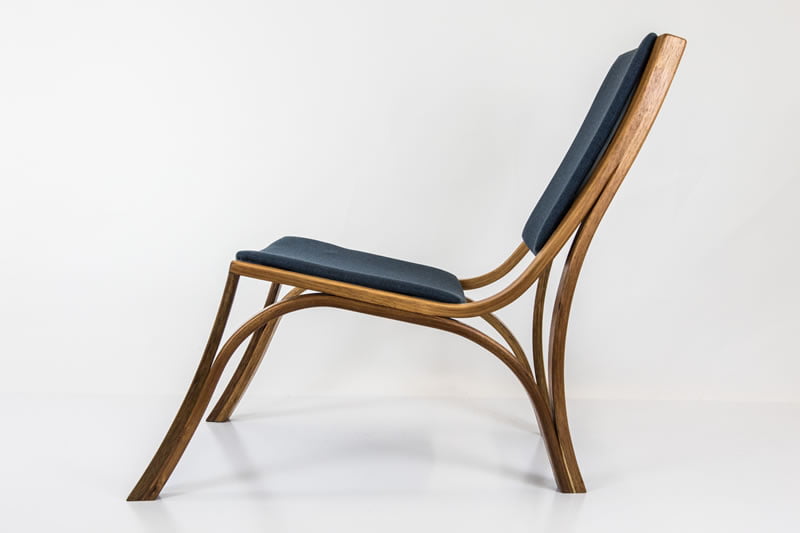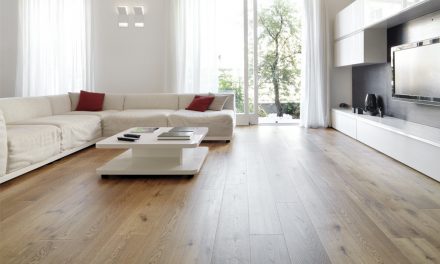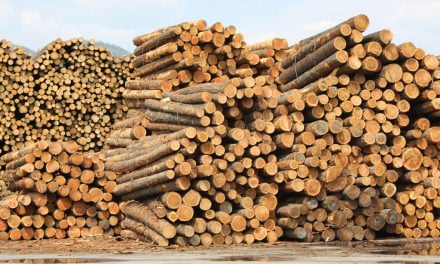Sustainability key focus for aspiring young Australian designers.
Long after the afternoon bell goes for HSC students at Freshwater Senior Campus in Sydney’s Northern Beaches, you can hear the high-pitched sounds of jigsaws and orbital sanders humming away in the workshop.
At first glance, it looks the same as any other student workshop would – abuzz with machinery and busy hands, curled wood shavings hovering on the floor, and the distinct smell of freshly carved wood lingering in the air. But as the various pieces take shape – a surfboard that showcases hand cut marquetry, a pod chair that was inspired by biomimicry, and a chair which is constructed of entirely curved components — it becomes quickly apparent that these aspiring young designers are pushing the boundaries of design.
The students work under the tuition of Ben Percy, a Sydney-based furniture designer maker known for his soft, curved lines inspired by nature. His expert craftsmanship has gained national recognition for his signature Mantis Table in Tasmanian Blackwood and Pod Chair in Celery Top Pine among others.
Core to Percy’s design ethos is sustainability. Percy himself religiously sources sustainable timbers, but also considers the additional hardware, finishes and manufacturing processes, which have the greatest impact on the environment.
So for this year’s HSC projects, Percy teamed up with Britton Timbers, who donated 5 cubic metres of Tasmanian Blackwood in support of Freshwater Senior Campus student designers.
In a recent exhibition that celebrated the students’ achievements over the year, it’s clear that this next wave of talent is putting environmental impact at the forefront of their design philosophy.
“Supporting the Australian Industry and its sustainability is a fundamental focus of what I teach my students here,” Percy says. “I am finding that each year my students are becoming much more passionate about sustainable design and sustainable living. As a furniture designer myself, I am able to give my students a real understanding of just how much responsibility designers have in creating sustainable designs and the control they can have over what consumers are offered.”
For the 10 students completing their HSC in Design and Technology, their brief was to create a product which addresses a genuine need in society and one which also minimises the impact on the environment. In Industrial Technology Timber, 13 students had to pursue the development of a piece of furniture which showcases a wide range of technical skill and attention to detail.
“It was very important for me to use sustainable timber as it ensures that the future of furniture making continues,” says student Tiani Schaefer. “If people don’t consider this now, then there wouldn’t be as many avenues and choice of products in the future so it was pretty important and pretty great to have this opportunity supported by Britton Timbers.”
When the packs of rough sawn timber arrived on the loading docks, students were able to choose the piece of timber that best suited their project. This experience of sorting through rough sawn timber is something that every designer who works with timber should experience according to Percy. For Percy, who has been teaching since 2011, the experience is extremely rewarding.
“I think most of all, they were absolutely thrilled being able to create their pieces from such a beautiful timber,” he says. “The finished pieces really showcase the beauty that Blackwood has to offer.”
The projects have all been externally marked by the NESA (NSW Education Standards Authority) and are free to go home with their makers. For now, the workshop at Freshwater Senior Campus is quiet but there is no doubt that this next generation of makers will continue to lead the way in sustainable design.
Tasmanian Blackwood has the same richness in quality and warm tones as other premium timbers, but is more readily available and cost effective, making it an affordable homegrown luxury. It is a sustainably sourced species from Tasmania’s native forests and is PEFC certified.











